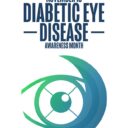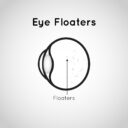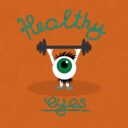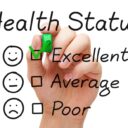Eye Health
Understanding Migraines and Their Impact on Eye Health
Migraines are more than just severe headaches. They can be debilitating episodes that affect various aspects of a person’s life, including their vision. Understanding the connection between migraines and eye care is crucial for managing both conditions effectively.
These intense, throbbing headaches are often accompanied by nausea, vomiting, and sensitivity to light and sound. They can last anywhere from a few hours to several days and can significantly impact daily activities. According to the World Health Organization, migraines are among the most disabling medical conditions globally.
The Connection Between… Continue reading
Insight into Women’s Eye Health: Risks, Prevention, and Care
April is Women’s Eye Health and Safety Month, shining a spotlight on women’s overall well-being. Often the ones managing their family’s healthcare, women sometimes overlook their own needs. According to the National Eye Institute, two out of every three people living with blindness or vision problems are women. This important initiative aims to increase awareness about eye diseases and conditions that disproportionately affect women.
Research indicates that women are more prone to certain eye issues, especially as they age and undergo hormonal changes. For example, dry eye syndrome, a… Continue reading
Vision Matters: National Diabetic Month and the Fight Against Diabetic Retinopathy
November is National Diabetic Month, a time dedicated to raising awareness about diabetes, its complications, and the importance of managing this chronic condition. One aspect of diabetes management is the potential impact it can have on our eyes, particularly diabetic retinopathy. In this blog, we will explore the significance of regular eye exams, the connection between diabetes and eye health, and why diabetic eye disease is the leading cause of vision loss among working adults.
Understanding Diabetic Retinopathy
Diabetic retinopathy is a diabetes-related complication that affects the eyes. It occurs… Continue reading
From Backpacks to Blue Light: Tips on Preserving Eye Health in the Back-to-School Hustle
The excitement of going back to school is often accompanied by a flurry of preparations, from shopping for school supplies to adjusting to new routines. However, in our increasingly digital world, another aspect that parents need to be mindful of is the potential for eye strain and blue technology overload in children.
Do you find yourself spending more time in front of your computer? Working from home, remote learning for your kids, texting, social media, TV – we never seem to be able to take a break from technology.… Continue reading
Causes of Eye Floaters
Ever have a spot or line appear in your field of vision? Eye floaters are a common term for this. Most of the time, when you gaze at something bright, such as a white screen or the sky, these floaters will appear in your range of vision. When you glance around, you may see these areas, which have the appearance of floating. One or both eyes may have eye floaters.
The retina, the inner, light-sensitive layer of the eye, really sees floaters as shadows, even though they may appear to… Continue reading
How is Your Eye Health Stacking Up?
Good eye health involves having clear vision, comfortable eyes, and normal visual function, which are essential for daily activities such as reading, driving, and using electronic devices. Patients take their eyesight for granted until they begin having problems with their vision. Keeping up with annual checkups is as important as your annual physical. Having good vision and healthy eyes may determine your ability to remain independent and self-sufficient.
Tips To Maintain Optimal Eye Health
EAT A BALANCED DIET
As part of your healthy diet, choose foods rich in antioxidants, like… Continue reading
National Women’s Eye Health Month
Every year in April, we celebrate Women’s Eye Health and Safety Month to raise awareness about the importance of eye health and safety for women. According to the National Eye Institute, women are more likely to suffer from eye diseases than men, and they are also more likely to be visually impaired or blind.
Because of changes in estrogen levels, women’s eye health might fluctuate during puberty, pregnancy, and menopause.
Increased estrogen levels throughout puberty may alter the size and structure of the eye, which may result in nearsightedness… Continue reading
Why Your Preschooler Should Have an Annual Eye Exam
As a parent, one of the many important decisions you will make is choosing the right preschool for your child. However, before you send your child off to school, it’s important to also have their vision checked. A comprehensive eye exam will help in preparing them for school and can identify vision problems that could hinder their learning and development. In this blog, we’ll explore the importance of a comprehensive eye exam and how it differs from a basic eye screening.
According to the American Optometric Association, one in four… Continue reading
Eye Care And New Year’s Resolutions
Your eyesight holds the key to your independence. As we turn the page to a new year, taking care of your eyesight should be on your “To Do” list. Resolutions for better health often include, eating better, exercising, or cutting down on sugar intake. While many people have resolutions to improve their health, they tend to not include an annual medical physical, 6-month dental visits, a hearing evaluation, and an annual eye exam.
3 Tips for Optimal Eye Health & Eye Care
Schedule A Check-up
As you turn the… Continue reading
The Correlation Between Diabetes And Eyesight
November is Diabetes Awareness Month. For the millions of us who are at risk for diabetes, it’s a time to get educated, find resources, and make sure all those around us are aware of their risk as well. Through advocacy, program development, and education the American Diabetes Organization “aims to improve the quality of life for the over 133 million Americans living with diabetes or prediabetes. New technologies to manage diabetes, better resources to educate ourselves, and a community that’s stronger than ever.”
Just as annual physicals are important to… Continue reading










